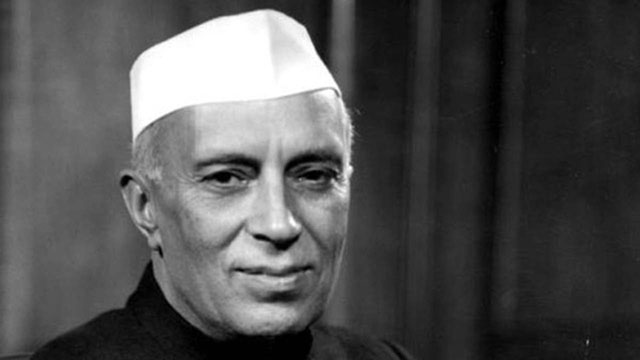
Modi to open 70-yr-old secret files in challenge to Gandhi dynasty
 PHOTO: GQINDIA
PHOTO: GQINDIAAs Narendra Modi looked on, heads of various states more than compensated for the omission by lavishing praise on India’s first prime minister. Zimbabwean President Robert Mugabe eulogised Nehru as a leader of lofty standing and termed the Indian National Congress (INC) a great political party. Others remembered him as a founding member of the Non-Aligned Movement (NAM).
A movement that allowed the countries of the south to make their presence felt on the international stage in an erstwhile Eurocentric world sundered into two competing ideological blocs. So great was Nehru’s prestige in the Muslim world in wake of the 1956 Suez Canal Crisis that the Arabs labelled him Rasul-as-Salam (messenger of peace). Poet Rais Amrohvi paid homage to Nehru in verse by penning the following lines:
Jap raha hai mala ek Hindu ki Arab
Barahman zade mein shaan-i-dilbari aisi toh ho
Hikmat-i-Pandit Jawaharlal Nehru ki kassam
Mar mitte Islam jis per kafiri aisi toh ho
 Nehru with daughter, Indira Gandhi. PHOTO: INDIAFACTS
Nehru with daughter, Indira Gandhi. PHOTO: INDIAFACTSJust three days after modern India had finished observing the 126th birth anniversary of its maker, Rashtriya Swayamsevak Sangh (RSS) leader Indresh Kumar opined that Nehru was “a traitor of motherland (sic).” By delivering the remarks, Kumar merely recapitulated an observation that would even come across as hackneyed from the vantage point of the Sangh Parivar.
Filming for English period drama on Jinnah, Gandhi and Nehru kicks off
What else can a man who endangered his own life to save that of one from a community which the Saffron Combine has time and again derided be termed anything otherwise? If paucity of perspicacity and lack of erudition were to be used as yardsticks to confer national honours, Kumar would certainly be decorated with the Bharat Ratna with him going on to assert that India was merely a landmass for Nehru, a sizeable quantity of which, he had given away to Pakistan.
 PHOTO: INDIATODAY
PHOTO: INDIATODAYWhile blaming Nehru (and the INC) for Partition seems to have become a time-honoured practice, this approach to the vivisection of India is fundamentally flawed. How could a leading light of a disparate movement wielded together by a commitment to pluralism and democracy be reasonably expected to recognise a sole party’s claim of representing an eclectic community riven by the forces of caste, sect, language and social standing? How could Nehru, as a leader of undivided India’s preeminent political party, be realistically expected to relinquish his right to canvass for Muslim votes? How could not a man, who devoted the prime years of his life to emancipating India from the paramountcy of its colonial overlords, be expected to reiterate the supremacy of its elected Constituent Assembly?
For the love of literature: KLF to bring Nehru’s niece this year
 PHOTO: AFP
PHOTO: AFPAs the results of the recently concluded assembly elections in Bihar started trickling in, it soon became evident that the people of one of India’s most pivotal states had emphatically rejected the National Democratic Alliance (NDA). In a befitting tribute to Nehru, the people of Bihar employed the democratic character of the Indian state enshrined by Nehru to reject a stoic political force that has time and again stoked communalism after receiving a mandate for development.
Most witness history unfold. Even fewer peruse it. Only the select make it. Nehru did all three.
1728297472-0/Fousey-(1)1728297472-0-405x300.webp)

1730806672-0/diddy-(37)1730806672-0-165x106.webp)
1731748155-0/BeFunky-collage-(8)1731748155-0-165x106.webp)




1731738952-0/Untitled-design-(13)1731738952-0-270x192.webp)
1731735822-0/Copy-of-Untitled-(1)1731735822-0-270x192.webp)







COMMENTS (10)
Comments are moderated and generally will be posted if they are on-topic and not abusive.
For more information, please see our Comments FAQ